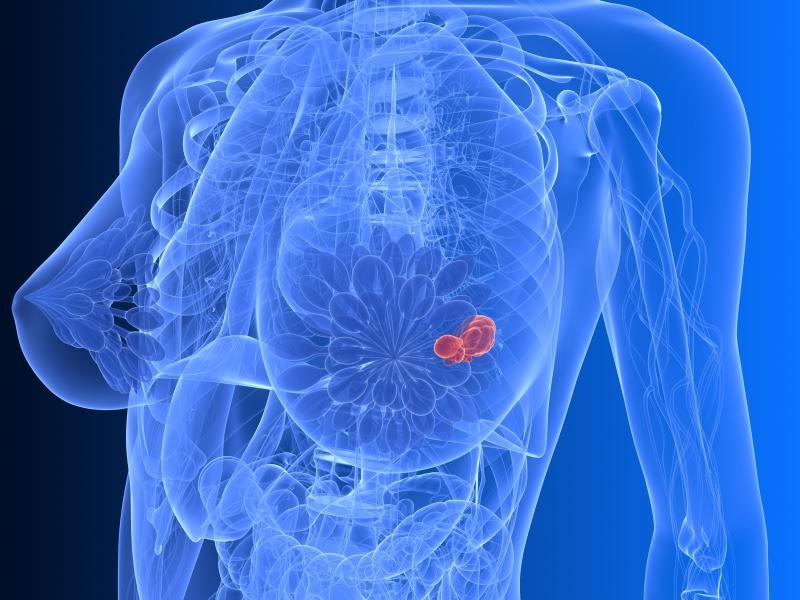
Use of regional anaesthesia-analgesia using paravertebral blocks and the anaesthetic propofol does not lead to a lower risk of breast cancer recurrence after potentially curative surgery as compared with general anaesthesia with the volatile anaesthetic sevoflurane and opioid analgesia, according to a study.
A total of 2,108 women (aged <85 years) undergoing potentially curative primary breast cancer resections were randomized to receive either regional anaesthesia-analgesia (paravertebral blocks and propofol; n=1,043) or general anaesthesia (sevoflurane) and opioid analgesia (n=1,065).
During a median follow-up of 36 months, the primary outcome of local or metastatic breast cancer recurrence occurred in 102 patients in the regional arm and in 111 in the general arm (10 percent vs 10 percent; hazard ratio, 0.97, 95 percent CI, 0.74–1.28; p=0.84).
Likewise, no significant between-group difference was observed in the secondary outcome of incisional pain, reported by 442 patients in the regional arm and in 456 in the general arm (52 percent vs 52 percent) at 6 months and by 239 and 232 patients (28 percent vs 27 percent), respectively, at 12 months (overall interim-adjusted odds ratio, 1.00, 0.85–1.17; p=0.99).
Neuropathic breast pain also occurred similarly by anaesthetic technique, reported by 87 patients in the regional arm and 89 in the general arm (10 percent vs 10 percent) at 6 months and by 57 patients in each arm (7 percent both) at 12 months.
Researchers stressed the need for future trials addressing larger operations that provoke more surgical stress and require more postoperative opioid administration.